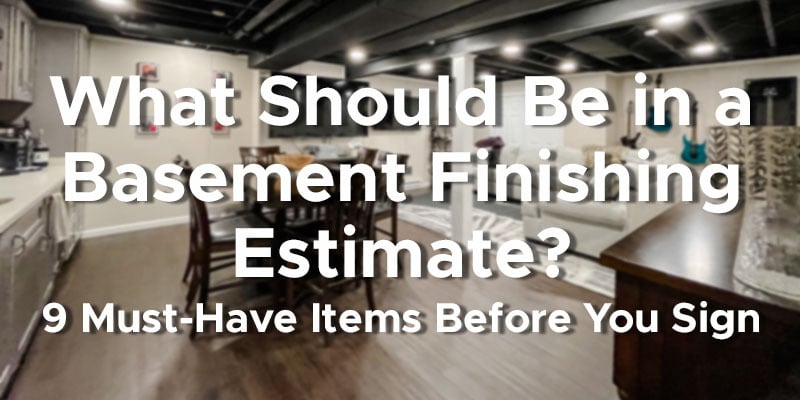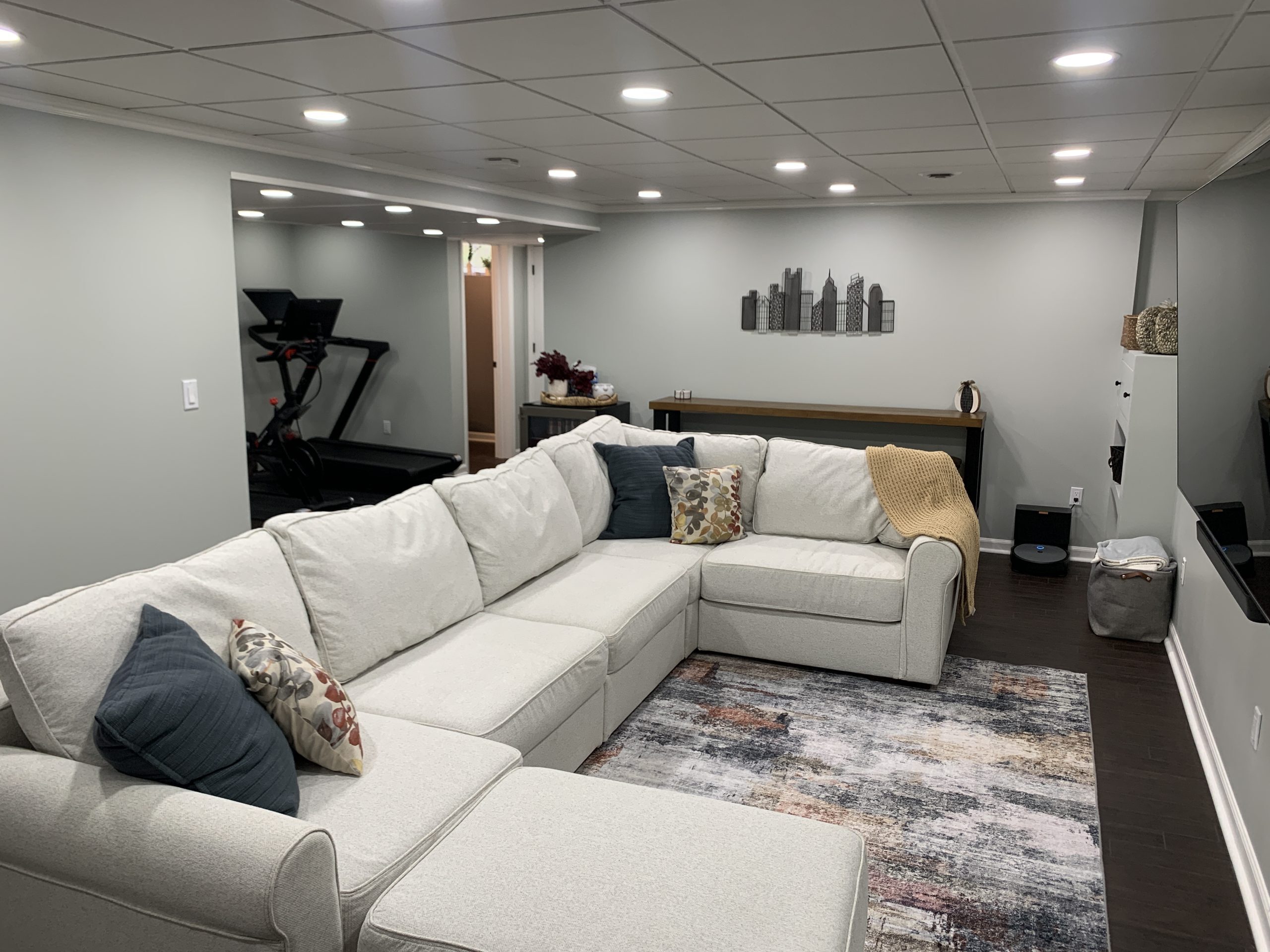Pittsburgh Basement Finishing System: Is Total Basement Finishing Right for Your Home?
April 18th, 2025
6 min read

If your basement has ever flooded or felt damp, you know the frustration of water damage, musty odors, and wasted square footage. That’s why many Pittsburgh homeowners hesitate to finish their basements. Traditional materials like drywall and carpet simply aren’t built for below-ground spaces, leaving you with limited, high-risk options.
Since 2017, Energy Swing has helped homeowners solve that problem with the Total Basement Finishing (TBF) system; a moisture-resistant, long-lasting solution specifically designed for Pittsburgh’s unique basement conditions.
But we’ll be honest: TBF isn’t right for everyone. In this article, we’ll explain exactly how it works, when it makes sense, and when it doesn’t. You’ll walk away with a clear understanding of the system, how it compares to traditional finishing methods, and whether it’s a smart fit for your home.
Table of Contents
What Is Total Basement Finishing and Is It Right for Your Basement?
Total Basement Finishing, also referred to as “TBF,” is an exclusive dealer network of contractors that offer basement finishing solutions to homeowners across America. Energy Swing is western PA’s only dealer of the Total Basement Finishing system, a moisture-resistant, long-lasting alternative to traditional materials. Its unique solution is designed to withstand the challenges of typical below-ground Pittsburgh environments, such as basements.
Unlike methods that use standard, above-ground building materials, the TBF system uses components resistant to moisture and mold-related damage and deterioration. These engineered products ensure long-term durability and peace of mind.
What Materials Are Used in the Total Basement Finishing System?
The Total Basement Finishing system includes three fully integrated components. Walls, flooring, and ceiling where each is designed to withstand moisture while giving your basement a clean, finished look. Choose the style and finish that fits your home best.
| Component | Details & Benefits |
|---|---|
| Walls: Everlast Wall System |
|
| Wall Finish Options |
|
| Flooring: Thermal Dry Elite |
|
| Ceiling System Options |
|
If you're specifically looking for TBF pricing details (materials, labor, upgrades), this cost breakdown article dives deeper.
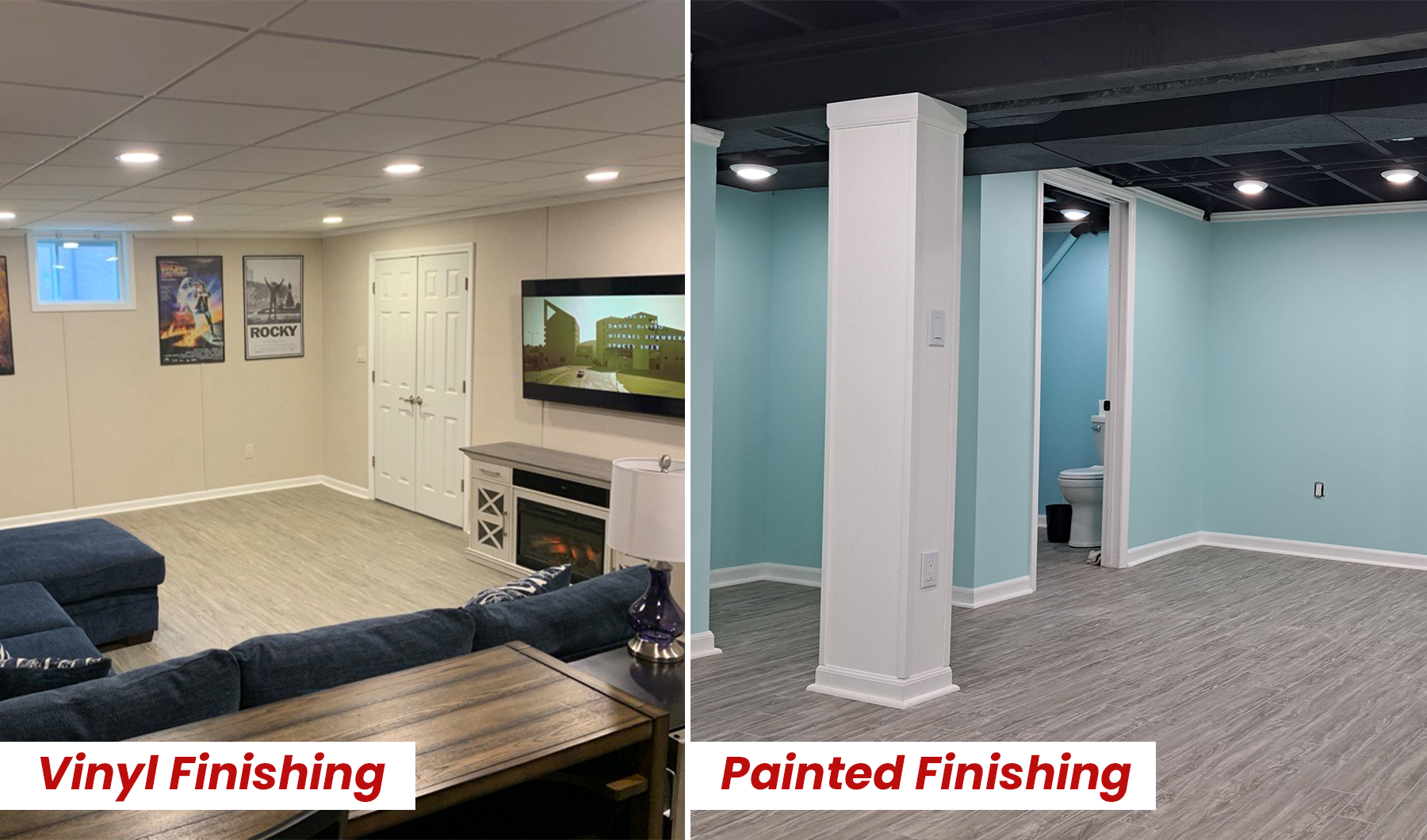
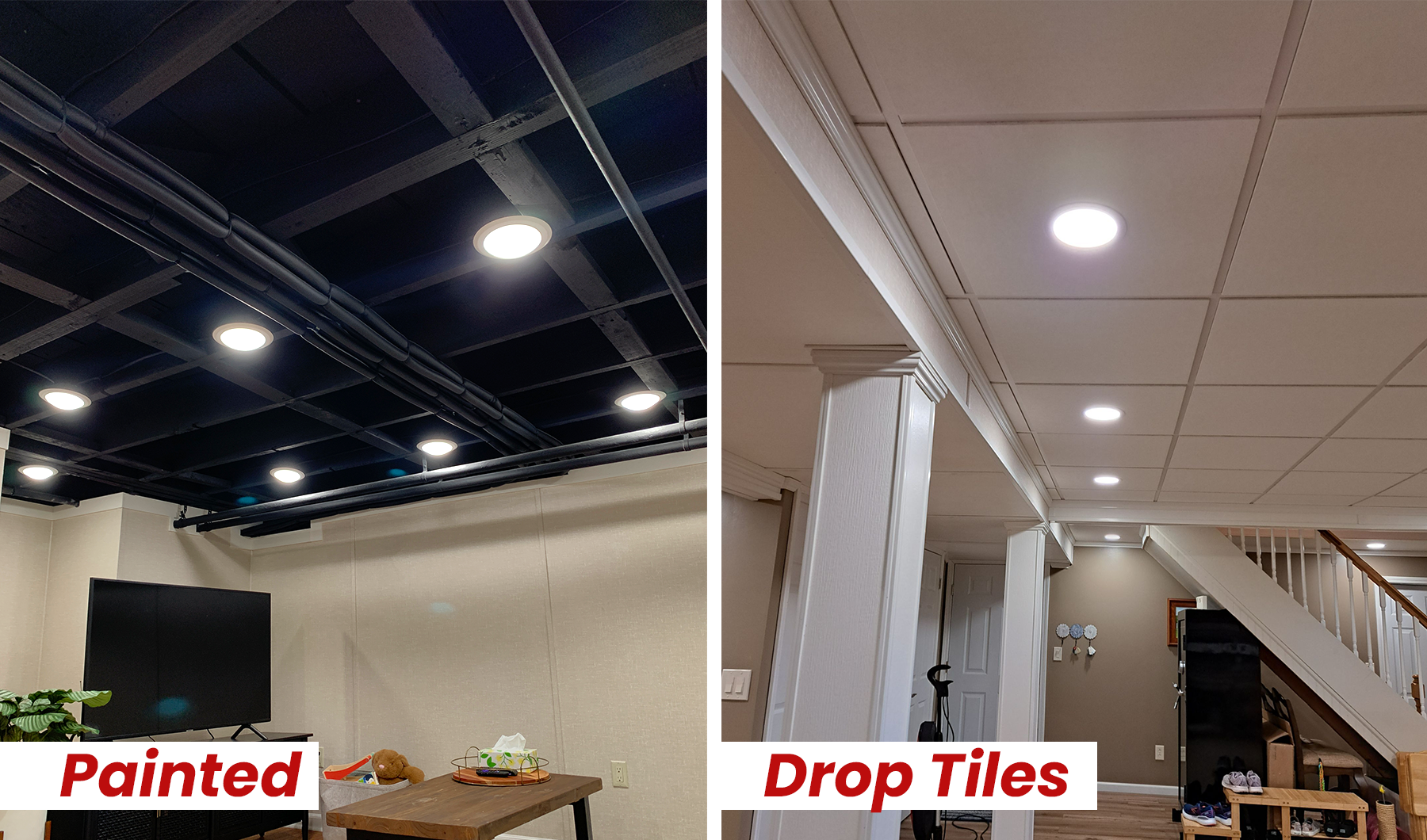
What are the Benefits of the Total Basement Finishing System?
Choosing TBF isn’t just about finishing your basement, it’s about creating a durable, energy-efficient space that stays comfortable and healthy for decades. Here’s what makes it stand out:
|
Benefit |
Why It Matters |
|---|---|
|
Moisture Resistance |
Inorganic materials resist water, mold, and mildew, keeping your air clean and your basement dry. |
|
Energy Efficiency |
Insulated walls and ceilings help regulate temperature, lowering heating/cooling costs and improving upstairs comfort. |
|
Durability & Low Maintenance |
Wall panels won’t crack, warp, or decay and the cement-blend surface is strong enough to hang a TV without studs. |
|
Customizable Design |
Layouts can be tailored to fit your lifestyle; from home gyms to guest rooms to offices. |
|
Long-Term Warranty |
Manufacturer-backed for up to 50 years (walls), plus Energy Swing’s exclusive Triple Lifetime Warranty on installation and service. |
TBF vs. Traditional Basement Finishing: What’s the Difference?
If you're deciding between Total Basement Finishing (TBF) and a more traditional approach, here’s a side-by-side breakdown of how they stack up in key areas like customization, installation, warranty, and long-term value:
|
Category |
Total Basement Finishing |
Traditional Basement Finishing |
|---|---|---|
|
Customization |
Designed for durability; limited aesthetic options for walls and ceilings |
Wide range of material choices for floors, ceilings, and finishes |
|
Installation |
• 3–5 week timeline |
• Time varies by contractor availability |
|
Warranty |
Manufacturer-backed: |
• Typically 1-year labor warranty |
|
Cost |
• Higher upfront investment |
• More budget-friendly |
|
Maintenance |
• Mold- and moisture-resistant materials |
• Materials more prone to moisture damage |
Not sure if TBF is the best route, or if a traditional basement finishing would be a better fit? Here’s a full article that compares the methods side by side.
How Long Does it Take to Install Total Basement Finishing?
On average, installation takes 3-5 weeks. The length of installation depends on the size of the space and the complexity of the project. When you choose TBF, some factors create a smoother installation process compared to typical basement finishing projects:
- All components are pre-engineered to fit together efficiently.
- One company handles the entire project, ensuring a streamlined process and consistent quality.
- Overall, there is less disruption to daily life due to a cohesive and organized installation with clear communication.
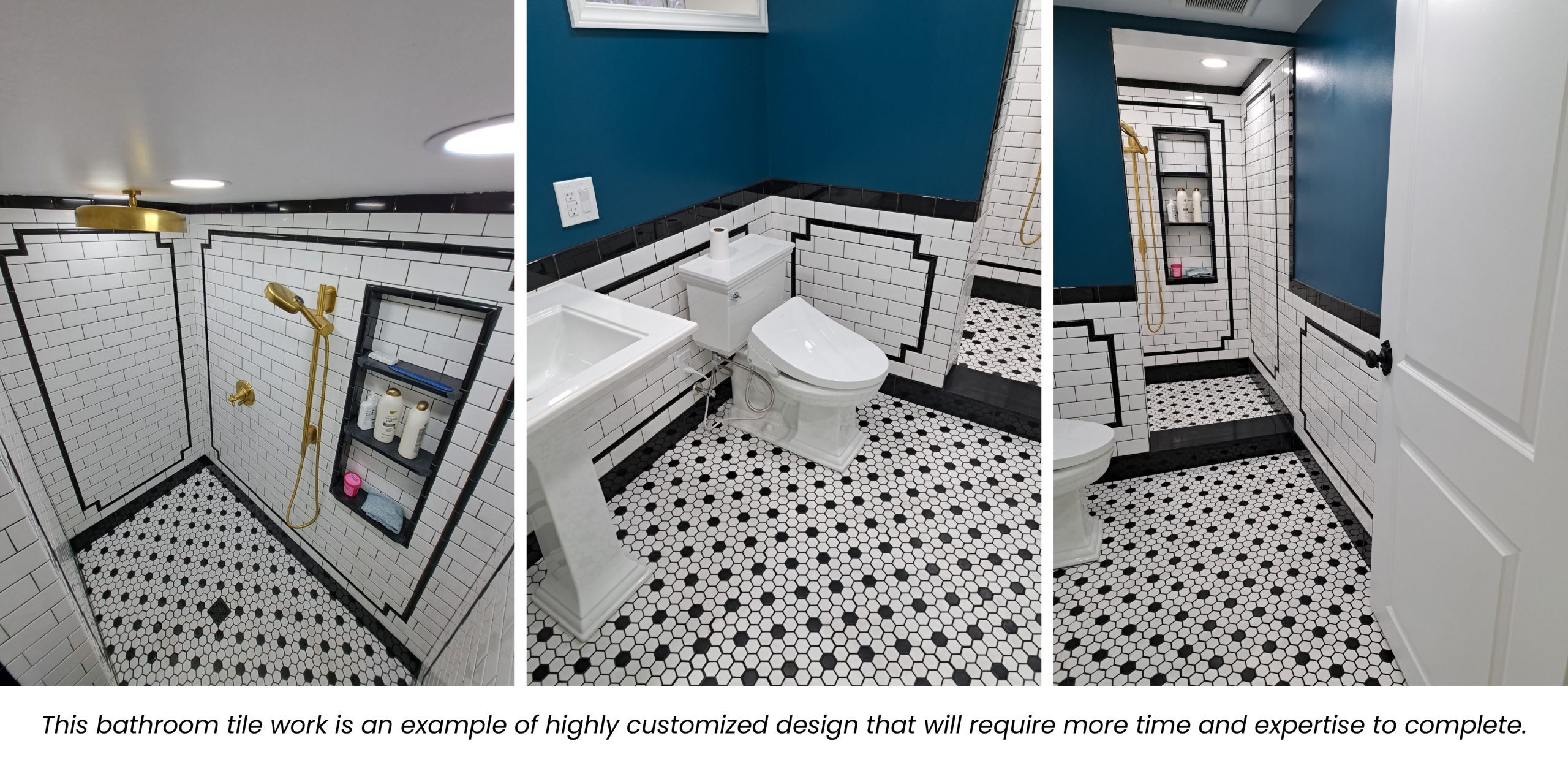
What are the Potential Drawbacks of Total Basement Finishing (TBF)?
While TBF offers many advantages over traditional finishing methods, it's not the best fit for every Pittsburgh basement. Here are a few situations where homeowners might face challenges:
|
Higher Upfront Cost |
TBF is a long-term investment, typically starting around $30,000 and reaching $100,000+ based on size and features. If you’re on a tight budget, traditional drywall and flooring may offer a lower-cost (though less durable) alternative. |
|
Not Necessary for Dry Basements |
If your basement is already dry and waterproofed, the added moisture protection of TBF may be unnecessary. In these cases, standard materials could be a more practical fit. |
|
May Not Suit Low Ceilings |
TBF’s drop ceiling system can reduce headroom by 4+ inches, an issue in older Pittsburgh homes with already low ceilings. A painted ceiling might be a better solution in these cases. |
|
Requires Professional Installation |
TBF is a specialty system that must be installed by certified professionals, there’s no DIY route. While this ensures quality, it removes the option to save on labor through self-installation. |
Why These Limitations Matter
Every basement is unique, and while TBF is a great fit for many Pittsburgh homes, it’s important to weigh the pros and cons before making a decision. If you have concerns about cost, design flexibility, or installation, our team can help you explore whether TBF is the right choice for your space.
If you’re weighing different finishing options, watch out for these common basement finishing regrets homeowners wish they’d avoided.
Is Total Basement Finishing a Good Fit for Your Pittsburgh Home?
Not sure if the Total Basement Finishing system is the right choice for your home? Use the table below to see how well it aligns with your needs, home type, and budget.
|
Scenario |
Is TBF a Good Fit? |
Why or Why Not |
|---|---|---|
|
You have a growing family |
Yes |
Ideal for families using the basement daily (e.g. playroom, living space). Designed for long-term durability. |
|
You only need an occasional entertaining space |
Not recommended |
The high upfront cost makes less sense if you’ll only use the space a few times a year. |
|
You’ve had past water or moisture issues |
Yes |
TBF is moisture-resistant and perfect for preventing repeat water damage headaches. |
|
You live in an older home |
Likely |
Older homes often have foundations prone to seepage. TBF helps protect against this. |
|
Your basement budget is over $30,000 |
Potentially |
TBF typically ranges from $30K–$100K+. If you’re in that range, it’s worth exploring further. |
Think You're a Good Fit? Here's What's Next.
For decades, Pittsburgh homeowners have struggled with damp basements, mold issues, and the risk of costly water damage. If you've ever considered finishing your basement, you may have worried about whether traditional materials can truly last in this environment.
Now that you understand the moisture-resistant, energy-efficient benefits of the Total Basement Finishing system, you can confidently evaluate whether it’s the best fit for your home. While TBF is an investment, it’s designed to save you thousands in long-term maintenance, energy savings, and replacement costs.
Your next step?
Use our Basement Finishing Estimator to get a realistic price range based on your space. It only takes a minute and it’s the best first step toward a basement that’s built to last
Frequently Asked Questions About Total Basement Finishing
1. How much does Total Basement Finishing typically cost?
Most TBF projects range between $30,000 and $100,000+, depending on the size, layout, and materials chosen. The best way to get a ballpark estimate for your home is to use our Basement Finishing Estimator
2. What makes TBF different from traditional basement finishing?
Unlike traditional methods that use drywall, wood, or carpet, the TBF system uses inorganic, mold- and moisture-resistant materials. This makes it more durable and better suited to Pittsburgh’s below-grade environments.
3. Can I install Total Basement Finishing myself?
No — TBF must be installed by trained professionals. It’s a proprietary system designed for expert installation, which ensures long-term performance and includes full warranty coverage.
4. Will a finished basement increase my home’s value?
Yes. A well-finished, dry, and usable basement can significantly increase your home’s livable square footage and resale value. TBF helps protect that investment by using materials built to last.
5. What if my basement is already dry, do I still need TBF?
If your basement is truly dry and has never had moisture issues, TBF may not be necessary. However, many Pittsburgh basements are prone to hidden moisture or humidity, and TBF can provide added peace of mind and protection.
Zach Fontecchio is a Client Consultant at Energy Swing who specializes in Basement Finishing. Having work with homeowners across the Pittsburgh area, he understands how to find the right basement finishing solutions based on homeowner needs.
Topics:


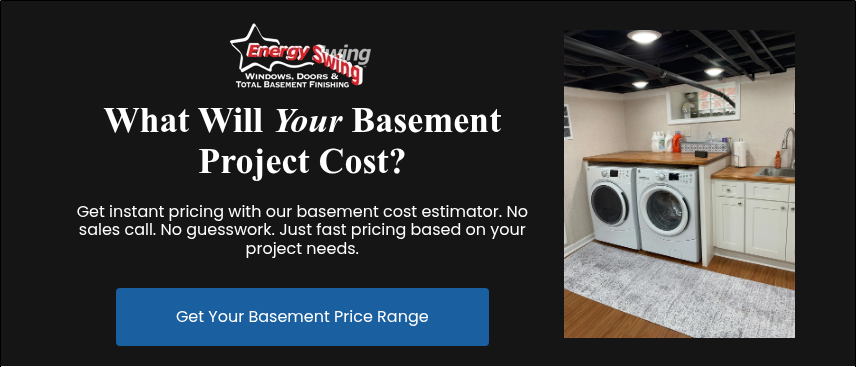



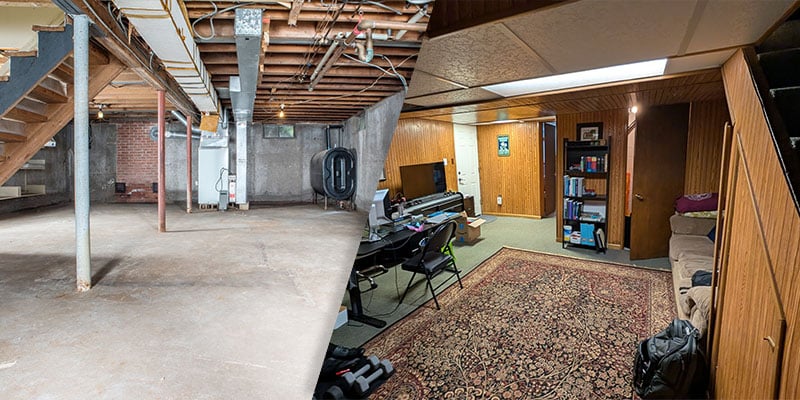
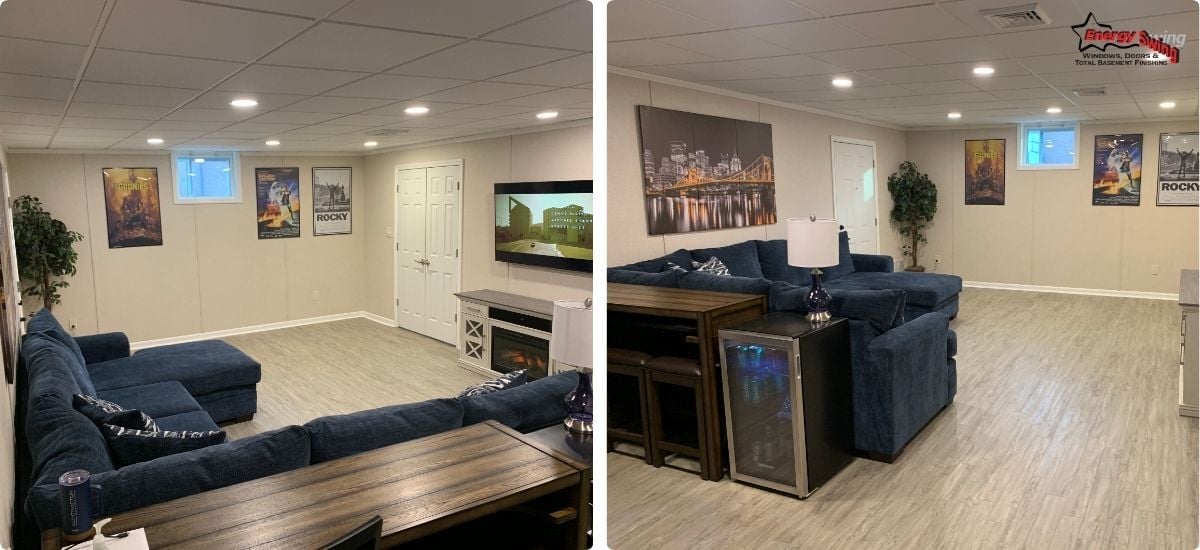
.jpg?width=1200&height=550&name=Copy%20of%20Copy%20of%20ESW%20Collage%20Template%20(3).jpg)
